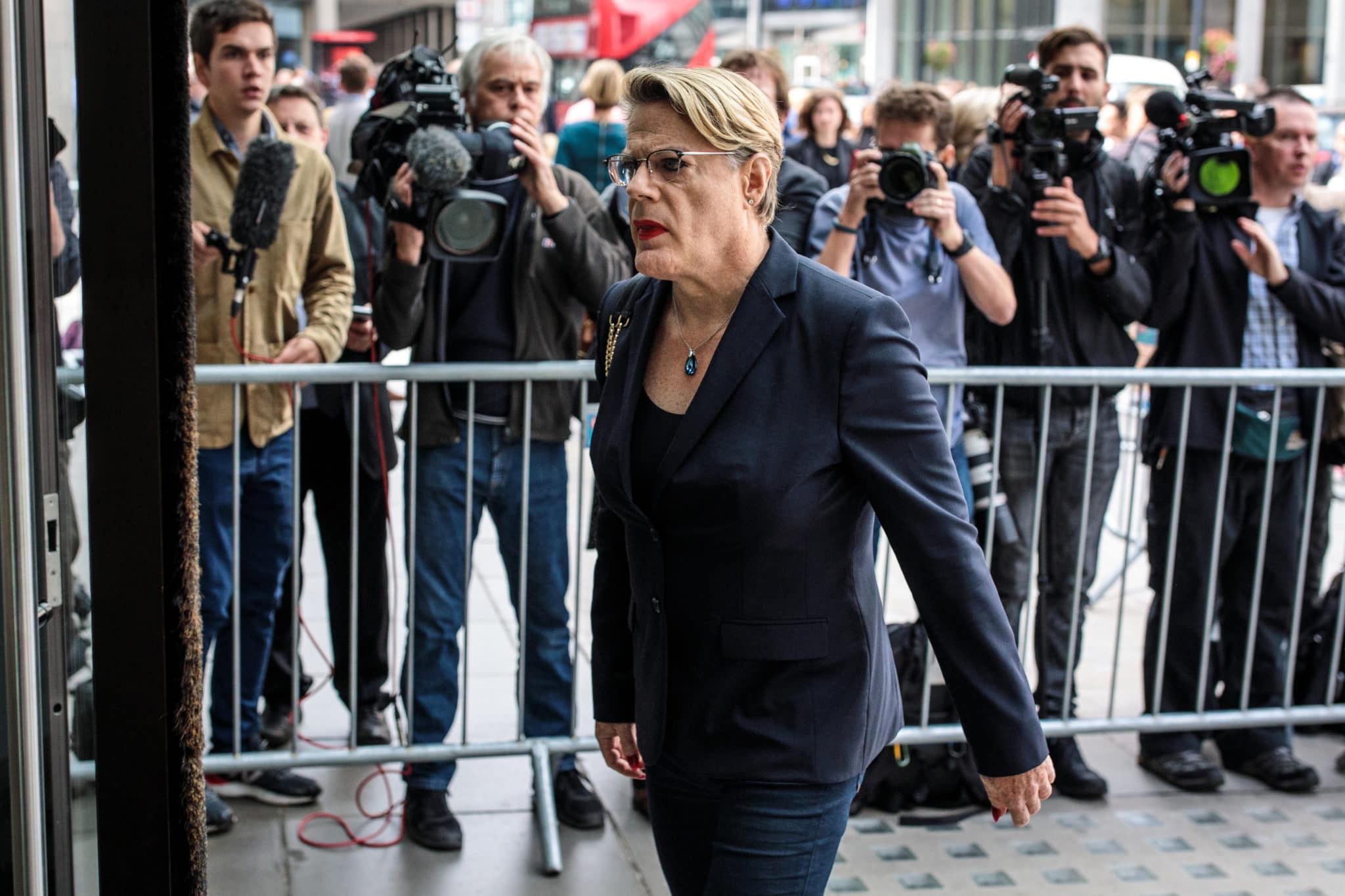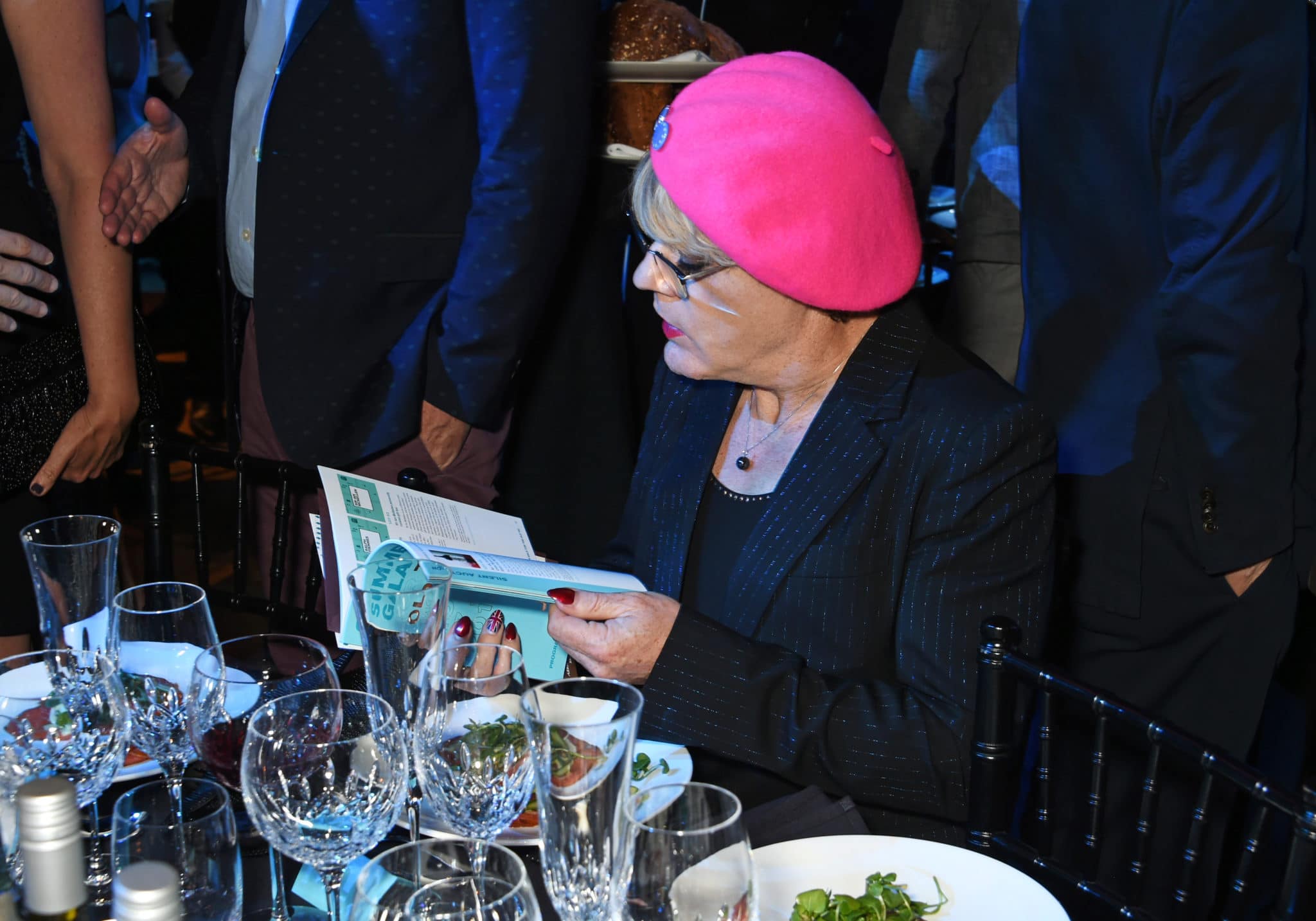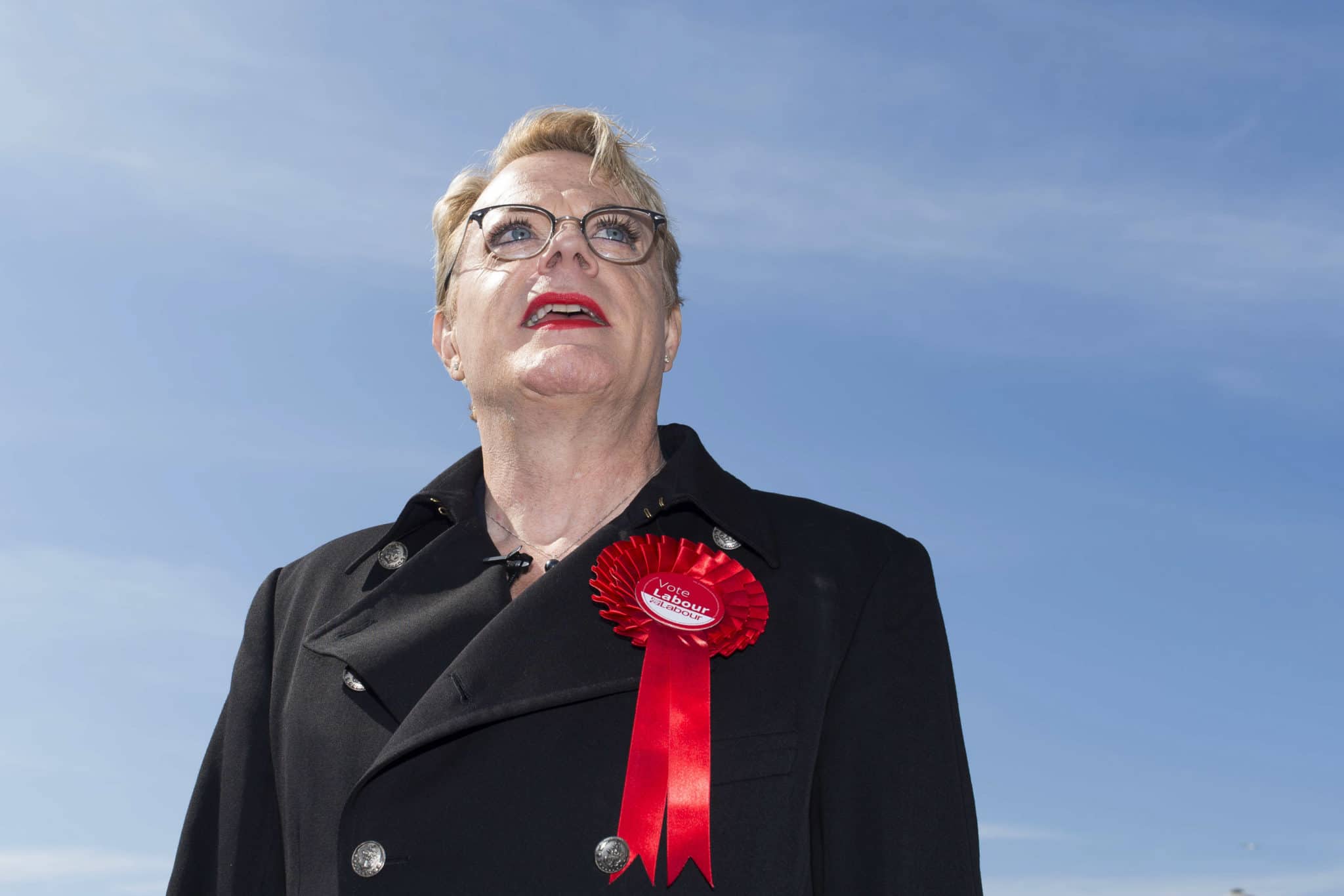Eddie Izzard campaigning for the Labour party in Mermaid Quay on May 10, 2017 in Cardiff, Wales. (Matthew Horwood/Getty Images)
Comedian and Labour campaigner Eddie Izzard sparked a wave of “collective gender euphoria” when she was referred to with she/her pronouns throughout a recent TV appearance.
Eddie, 58, whose career in stand-up comedy began in London in the late 80s, featured on the most recent episode of the Sky Arts series Portrait Artist of the Year, when contestants referred to her throughout with she/her pronouns.
“This is the first programme where I’ve asked if I can be ‘she’ and ‘her’,” Eddie says in a clip.
Asked how that feels, she says, “Well, it feels great. People just assume, or they know me from before.”
Saying that “this is a little transition period”, she added: “I’m gender-fluid. I just wanna be based in girl mode from now on. It feels very positive.”
For anyone who was confused, here is what Eddie said about her pronouns from now on. #EddieIzzard #TransIsBeautiful pic.twitter.com/m0ZxhqtmRb
— Sam (@spamvicious) December 20, 2020
A (very) brief history of Eddie Izzard and her gender
Eddie Izzard first came out as transgender in 1985, and has said she knew she was trans at the age of four.
At the 1992 Edinburgh Fringe festival, Eddie was to be found at 4am one night chatting to an Independent journalist, who asked her about being a transvestite – as she was then referring to herself.
“People ask me why I wear women’s dresses,” she replied. “But I keep telling them, they’re not women’s dresses. They’re my dresses.”
Like many trans feminine people, Eddie has faced ridicule and harassment for being trans – including from three teenage girls who chased her down the street the first day she wore a dress and make-up outside, which came a few months after she began going to a support group for transsexuals.

In 2014, she gently rebuked an interviewer who said they were “disappointed” that she didn’t wear high heels for her latest show. “You’re not doing that as much, right? Well, you did have boots on, I guess, but according to what I was reading, you don’t do the drag so much anymore,” she was asked.
“My heels were high, but how high do they have to be? I wear whatever I want whenever I want. I don’t call it drag; I don’t even call it cross-dressing. It’s just wearing a dress,” Eddie replied.
She was then asked if she “called it transvestitism”.
“No,” she replied, “I just call it wearing makeup. No woman would say of another woman, ‘Oh, she’s wearing pants, what’s up with that?’
“Drag for me is costume, and what I’m trying to do is, sometimes I’ll go around and wear makeup in the streets, turn up to the gig, take the makeup off, do the show, and then put the makeup back on. It’s the inverse of drag. It’s not about artifice. It’s about me just expressing myself.
“So when I’m campaigning in London for politics, I campaign with makeup on and the nails. It’s just what I have on, like any woman.”

And in 2016, she told the BBC that she’s “got boy genetics and girl genetics”, in a video during which she wears marathon-running gear to get her nails done a satisfying red.
“No matter what sex or sexuality, how you self-identity, or who you fancy, matters not one whit – what do you do in life? What do you make? What do you add to the human existence? That’s what’s matters,” she said.
Well, quite.
The inevitable backlash
Transphobes – even during a literal pandemic that has turned most people’s lives upside down and forced those of us who are still alive and healthy into survival mode – will, sadly, be transphobes.
Eddie Izzard asking for she/her pronouns to be used from now on was met with joy and love from most people, but a small group of small-minded bigots have been loudly offended. This, of course, is to be expected – transphobia in the UK right now has spiralled to the point where most trans people are afraid to leave the house.
One anti-trans lobby group, the LGB Alliance, wrote to Eddie Izzard on Twitter. “Hi Eddie,” the tweet began, “happy holidays!”
“Some of those who’ve always admired you are feeling rather let down by your announcement. We feel sure you didn’t mean to cause offence. We’d like to invite you to discuss it on a Zoom call. Please get in touch.”
If you’re offended by other people’s choice of pronouns, given everything else that’s going on might I suggest getting some perspective? Solidarity with Eddie Izzard, who is free, as is everyone else, to define herself in whatever terms she deems fit. pic.twitter.com/OJYyY0Zjxo
— Charlotte Nichols (@charlotte2153) December 28, 2020
Notwithstanding the audacity of thinking an internationally renowned comedian and British national treasure would get on Zoom with them, or even see their tweet, it does seem a little odd that those who have “always” admired Eddie would now be feeling “let down”.
Eddie Izzard has been openly trans since her early 20s. The language she’s used to describe herself and her gender has changed, of course – queer and trans vocabulary has changed almost unimaginably since she was born, including that “queer”, while still hurled as a slur, has been reclaimed as a political label (it seems to be in the early 00s that she moved from using “transvestite” to “transgender”).
Nothing has changed about Eddie Izzard except that now, instead of referring to herself with either binary pronoun, she now wants only she/her pronouns to be used. Looking at the bigger picture, this is a small moment of joy for one person – reflected onto those in trans communities who recognise what it takes to get to this point – and not much else.
But pronouns seem to be a sore spot for transphobic campaigners, who assert both that gender doesn’t exist (it’s “extremist trans ideology”, apparently) and that trans people are a threat to women (a gender themselves, last time we checked).
However, a bit of patronising bigotry won’t get rid of Eddie – and what would we give, I wonder, to see her to respond to that kind of heckle from a stage?
In the 80s and 90s, when Eddie was taking her first tentative steps towards living her truth, the language of transness and the public awareness of gender diversity was very different to how it is today. How wonderful then, how euphoric, for her to be proudly growing and stepping into that truth today.
Good for him. Welcome –
Ellen Page comes out as transgender and changes name to Elliothttps://t.co/htjZRXn6fU pic.twitter.com/rTtTYWspzt— Eddie Izzard (@eddieizzard) December 1, 2020
